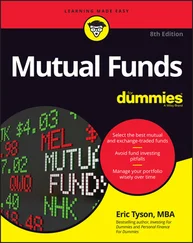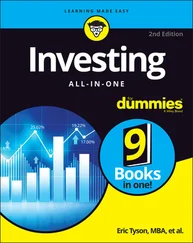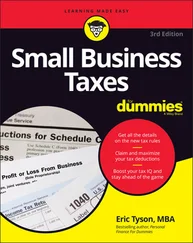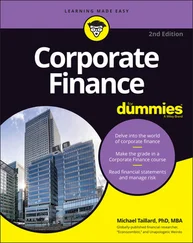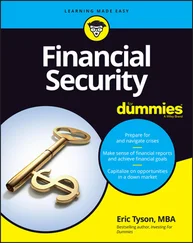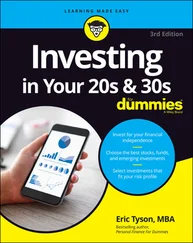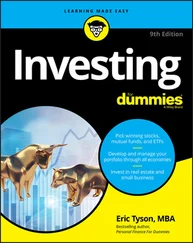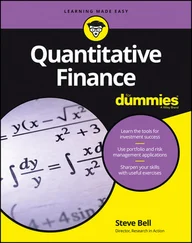1 ...8 9 10 12 13 14 ...18  Unless you earn a large income from your work or have a family inheritance to fall back on, your personal and financial desires probably outstrip your resources. Thus, you have to make choices.
Unless you earn a large income from your work or have a family inheritance to fall back on, your personal and financial desires probably outstrip your resources. Thus, you have to make choices.
Identifying common goals of accomplished savers
As a result of my experience counseling and teaching people about better personal financial management, I can share with you the common traits among folks who accomplish their goals. No matter how much money they made, the people I worked with who were the most successful were the ones who identified reasonable goals and worked toward them.
Among the common goals for young adults with whom I’ve worked are the following:
Making major purchases: You need to plan for major purchases. So if you have a future purchase in mind for a car, living-room furniture, the newest smartphone, vacations, and so on, you should save toward that.
Owning a business: Many people want to pursue the dream of starting and running their own business. The primary reason that most people continue just to dream is that they lack the money (and a specific plan) to leave their job. Although many businesses don’t require gobs of start-up cash, almost all require that you withstand a substantial reduction in your income during the early years.
Buying a home: Renting and dealing with landlords can be a financial and emotional drag, so most folks aspire to buy and own their own home. Real estate has a pretty solid track record as a long-term investment. Sure, there are downturns just as there are in the stock market, but buying during such times may be good because real estate is more affordable then. (See Chapter 7for more on housing.)
Starting a family/educating kids: Having children leads some parents to cut back on work, which requires planning for living on a reduced income and facing higher expenses. And, if you have kids or are planning to have kids, you may want to help them get a college education or other higher education. Unfortunately, that can cost a truckload of dough. Although you may never be in a position to cover all that cost, you’d probably like to be able to pay for a portion of it.
Retiring: Retiring is a catchall term for discontinuing full-time work, or perhaps not even working for pay at all. It can also mean achieving financial independence and feeling that you no longer have to work for the income. While your retirement may still be many years away, planning ahead for retirement is important. You may enjoy working and thus may not have given retirement much thought, but most people eventually do want to retire, and you want to be prepared. I address how to do that in the next section.
Valuing retirement accounts and financial independence
Where possible, focus on saving and investing in accounts that offer you tax advantages. Retirement accounts — such as a 401(k), 403(b), SEP-IRA, and so on — offer tax breaks to people of all economic means. So, start thinking of them as “tax reduction” accounts, rather than retirement accounts! In fact, lower-income and moderate-income earners have some additional tax breaks not available to higher-income earners (see my discussion of them later in this section).
Consider the following advantages to investing in retirement accounts:
Contributions are generally tax-deductible. By putting money in a retirement account, you not only plan wisely for your future but also get an immediate financial reward: lower income taxes. Paying less in income taxes now means more money is available for saving and investing. Retirement account contributions are generally not taxed at either the federal or state income-tax level until withdrawal (but they’re still subject to Social Security and Medicare taxes when earned).If you’re paying, say, 30 percent between federal and state taxes (see Chapter 6to determine your tax bracket and get more details on tax-reduction strategies), a $5,000 contribution to a retirement account immediately lowers your income taxes by $1,500.
Returns on your investment compound over time without taxation. After you put money into a retirement account, any interest, dividends, and appreciation (investment returns) add to your account without being taxed. Of course, there’s no such thing as a free lunch; these accounts don’t generally allow for complete tax avoidance. Yet you can get a really great lunch at a discount: You get to defer income taxes on all the accumulating gains and profits until you withdraw the money down the road. Thus, more money is working for you over a longer period of time. (Health savings accounts, which I discuss in Chapter 14, can offer complete tax avoidance. Also, though it offers no upfront tax breaks, the Roth IRA, which I discuss in Chapter 6, enables future tax-free withdrawals.)
Lower-income earners can get a special tax credit. In addition to the tax breaks I discuss previously, U.S. tax laws also provide a special tax credit, which is a percentage (ranging from 10 to 50 percent) of the first $2,000 contributed (or $4,000 on a joint return) to a retirement account. Unlike a deduction, a tax credit directly reduces your tax bill by the amount of the credit. The credit isn’t available to those under the age of 18, full-time students, or people who are claimed as dependents on someone else’s tax return.Married couples filing jointly with adjusted gross incomes (AGIs) of less than $66,000 and single taxpayers with an adjusted gross income of less than $33,000 can earn this retirement saver’s tax credit (claimed on Form 8880) for retirement account contributions.
Matching money may be available. In some company retirement accounts, companies match a portion of your own contributions. Thus, in addition to tax breaks, you get free extra money (terms vary by company) courtesy of your employer. But you have to contribute some of your own money to get the matching money. If you don’t, you’re essentially throwing away money, which you should never do!
Dealing with competing goals
Unless you enjoy paying higher taxes, you may wonder why you’d choose to save money outside of retirement accounts, which shelter your money from taxation. The reason is that some personal and financial goals aren’t readily achieved by saving in retirement accounts. Also, retirement accounts have caps on the amount you can contribute annually and restrictions for accessing the account.
 Because you’re constrained by your financial resources, you need to prioritize your goals. Before funding your retirement accounts and racking up those tax breaks, you should consider your other goals, such as starting or buying a business or buying a home.
Because you’re constrained by your financial resources, you need to prioritize your goals. Before funding your retirement accounts and racking up those tax breaks, you should consider your other goals, such as starting or buying a business or buying a home.
If you withdraw funds from traditional retirement accounts before age 59½, you not only have to pay income taxes on the withdrawals but also usually have to pay early withdrawal penalties — 10 percent of the withdrawn amount in federal tax, plus whatever your state charges. So if you’re accumulating money for a down payment on a home or to start or buy a business, you probably should save that money outside of a retirement account so you get penalty-free access to the funds.
Saving When You’re Strapped
You know that putting aside some money on a regular basis is important, but you may wonder how realistic it is, especially when you’re burdened with a never-ending list of bills or are starting out on your own. And, those six-figure-per-year jobs haven’t yet come your way! So what do you do? The first and most important thing is to work at paying down high-cost debt (see Chapter 3).
Читать дальше

 Unless you earn a large income from your work or have a family inheritance to fall back on, your personal and financial desires probably outstrip your resources. Thus, you have to make choices.
Unless you earn a large income from your work or have a family inheritance to fall back on, your personal and financial desires probably outstrip your resources. Thus, you have to make choices. Because you’re constrained by your financial resources, you need to prioritize your goals. Before funding your retirement accounts and racking up those tax breaks, you should consider your other goals, such as starting or buying a business or buying a home.
Because you’re constrained by your financial resources, you need to prioritize your goals. Before funding your retirement accounts and racking up those tax breaks, you should consider your other goals, such as starting or buying a business or buying a home.